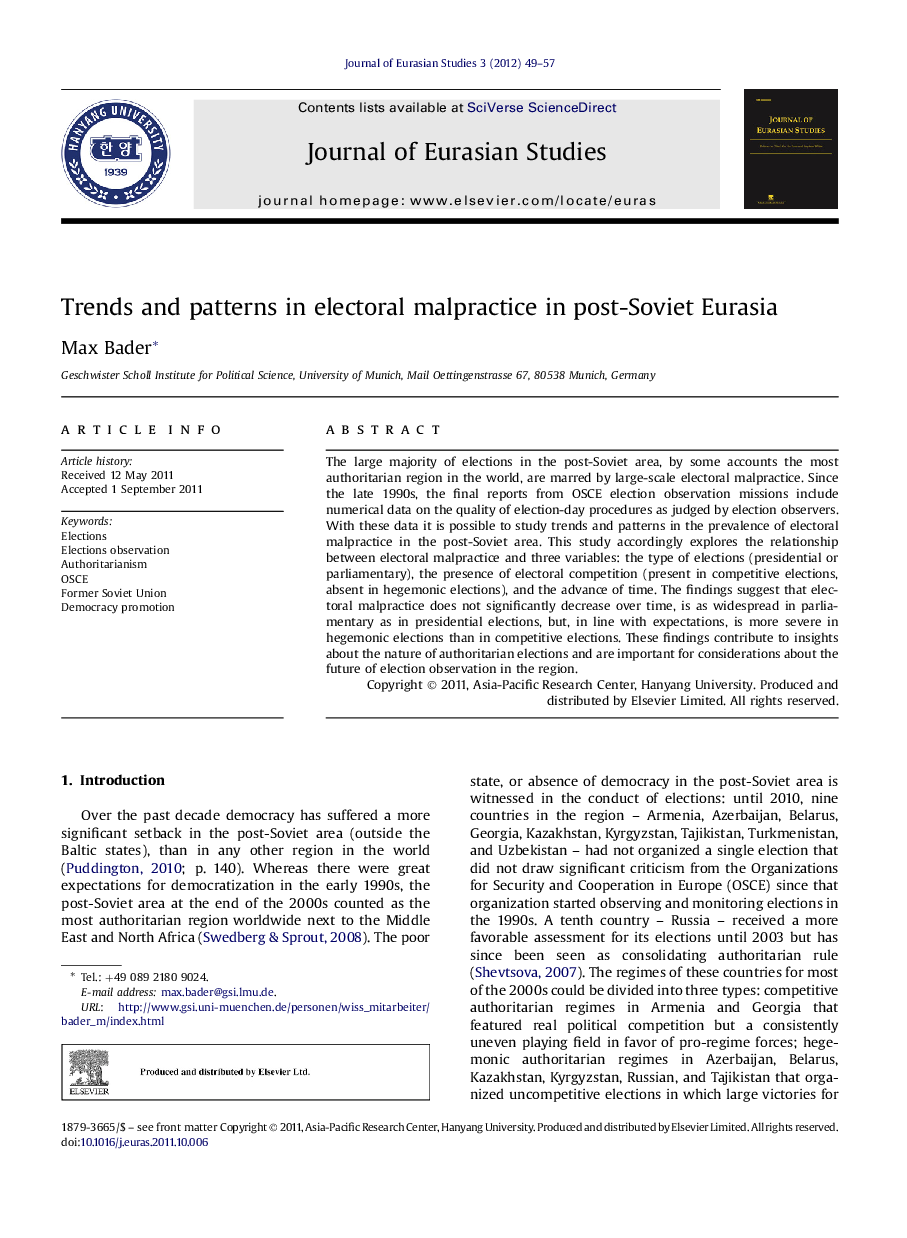| Article ID | Journal | Published Year | Pages | File Type |
|---|---|---|---|---|
| 1127315 | Journal of Eurasian Studies | 2012 | 9 Pages |
The large majority of elections in the post-Soviet area, by some accounts the most authoritarian region in the world, are marred by large-scale electoral malpractice. Since the late 1990s, the final reports from OSCE election observation missions include numerical data on the quality of election-day procedures as judged by election observers. With these data it is possible to study trends and patterns in the prevalence of electoral malpractice in the post-Soviet area. This study accordingly explores the relationship between electoral malpractice and three variables: the type of elections (presidential or parliamentary), the presence of electoral competition (present in competitive elections, absent in hegemonic elections), and the advance of time. The findings suggest that electoral malpractice does not significantly decrease over time, is as widespread in parliamentary as in presidential elections, but, in line with expectations, is more severe in hegemonic elections than in competitive elections. These findings contribute to insights about the nature of authoritarian elections and are important for considerations about the future of election observation in the region.
